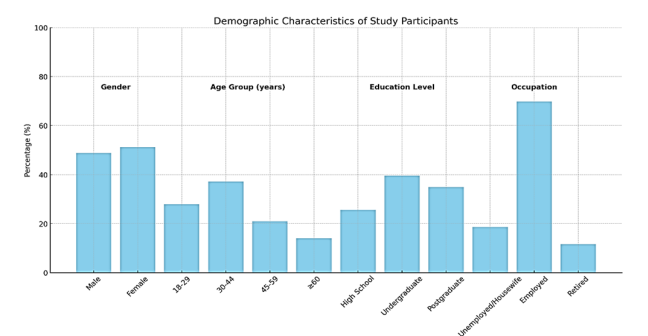Abstract
Background:
Cardiovascular diseases are the leading cause of death in the world, causing 17.9 million deaths annually. In India, with cities like Mangalore included, the burden of cardiovascular disease is increasing rapidly.
Objectives: To assess knowledge, attitudes, and practices regarding cardiovascular disease risk factors among adults in Mangalore, Karnataka, India.
Methods:
A cross-sectional survey was conducted on 215 adults aged above 18 years through stratified random sampling. Data collection was accomplished using a validated structured questionnaire; it measured knowledge relating to cardiovascular disease risk factors, attitudes toward prevention, and health practices. High questionnaire reliability was observed; this is because Cronbach's α for knowledge, attitude, and practice parts appeared to be 0.82, 0.78, and 0.76 respectively. Descriptive statistics, t-tests, ANOVA, and multiple regression were used in the analysis.
Results:
The mean age was 42.3±13.7years and females were at 51.2%. Awareness that hypertension is a risk factor for cardiovascular disease was 88.4%, 95% CI: 83.9-92.9%. Conversely, awareness of the risk of diabetes was slightly lower, at 72.1%, 95% CI: 65.9-78.3%. The prevention attitude score is positive, with 90.7%, 95% CI: 86.5-94.9% agreeing to exercise regularly. Only 70.0%, 95% CI: 63.7-76.3% agreed to having had exercised lately. Education level strongly predicted knowledge scores (β=0.15, p=0.02), and knowledge scores were positively correlated with attitude scores (r=0.45, p<0.01).
Conclusion:
Knowledge-practice gaps are critical despite high awareness levels and positive attitudes, especially on diabetes awareness and implementation of physical activity. Interventions focusing on behavior change and diabetes education are therefore recommended to bridge these gaps.

This work is licensed under a Creative Commons Attribution-NonCommercial-NoDerivatives 4.0 International License.
Copyright (c) 2024 Oral Sphere Journal of Dental and Health Sciences





